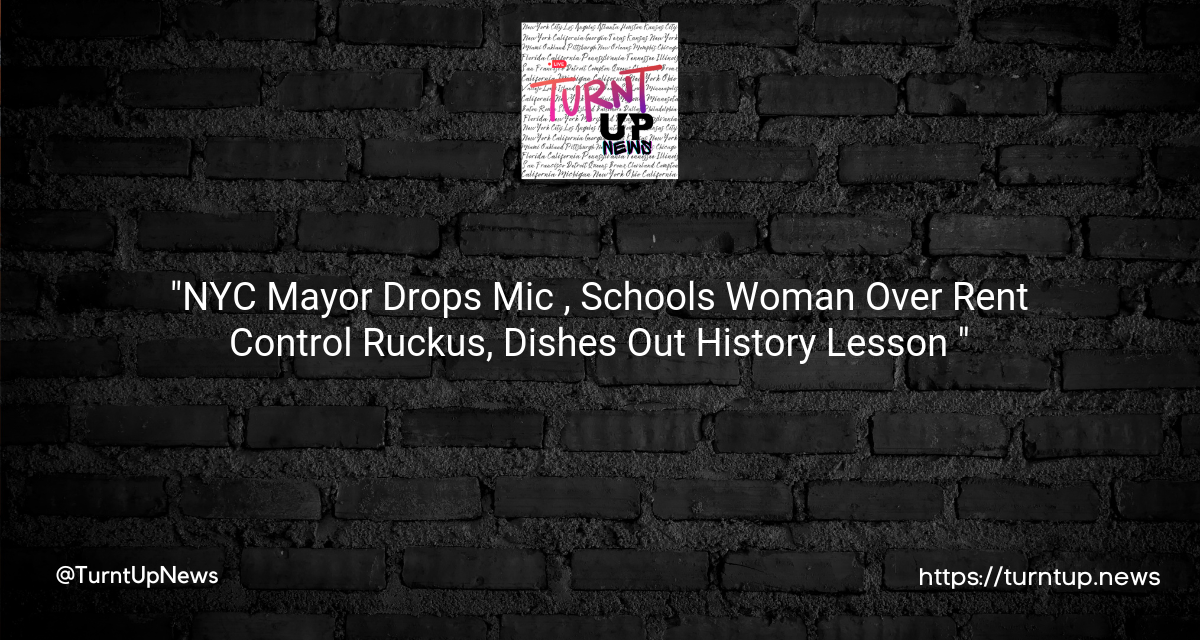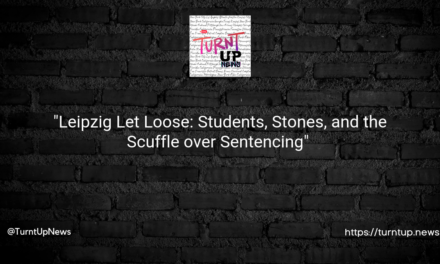🌃🗽 “NYC Mayor Drops Mic 🎤, Schools Woman Over Rent Control Ruckus, Dishes Out History Lesson 📚”
TL;DR; 🎭🍿 Mayor of NYC, Eric Adams, found himself at the centre of a dramatic showdown at a community meeting recently. Things went south when a disgruntled attendee launched into a tirade about rent hikes, pointing fingers – literally – at the Mayor. In response, Adams dropped a history lesson, likening her behavior to that of a plantation owner. Cue the collective gasp! 😲
In the Empire City, known for its towering skyscrapers and roaring crowds, we had a whole different kind of drama unfold at Gregorio Luperon High School for Science and Mathematics. But, fear not, there weren’t any unscheduled physics experiments gone wrong. It was a showdown featuring our very own NYC Mayor, Eric Adams.
Picture this: a typical community meeting, an assortment of topics, cordial discussions. Suddenly, a woman springs from the audience, passionately accusing Adams of escalating rent rates. Adams, playing it cool, clarifies that he doesn’t actually have the power to control the Rent Guidelines Board. But, oh boy, did she persist, pointing her finger at him as if he just ate the last slice of pizza! 🍕
Now, as we all know, Adams isn’t one to back down from a battle of words. In the heat of the moment, he asked the lady for some respect, as one would expect for the Mayor of NYC. But he didn’t stop there. In a move that could’ve been ripped straight out of a blockbuster movie script, Adams went for the dramatic metaphor, comparing her aggressive behavior to that of a plantation owner. Mic drop. 🎤
All right, let’s take a step back here. As an audience, we’ve got to ask: was Adams’ comparison a tad too much? Or was he just standing his ground in a heated exchange? Was it a classic example of history repeating itself in a new avatar, where the oppressor becomes the oppressed?
Admittedly, the comparison to a plantation owner is a heavy one, loaded with historical significance and uncomfortable truths about power dynamics and systemic oppression. Not something to be thrown around lightly. That being said, it serves as a vivid illustration of Adams’ perspective on the interaction.
By comparing her behavior to that of a plantation owner, Adams suggests that he was being unfairly targeted and disrespected. A clear reminder that power dynamics can play out in various scenarios, even in the modern-day Empire City.
But that’s just one perspective. In the grand scheme of things, we can’t help but question: are we losing sight of the real issue here? The woman was there to voice her concerns about escalating rent rates, a real issue affecting many New Yorkers. 🏙️🔝
Perhaps, amidst the finger-pointing and history lessons, we missed an opportunity for a constructive conversation about rent control and affordable housing. Maybe, just maybe, this exchange could have ended on a more hopeful note, with a focus on solutions rather than accusations.
So, here’s our parting question for you: where should we draw the line between defending oneself and addressing the core issues at hand? Are the dramatic showdowns diverting us from the real problems faced by everyday New Yorkers? 🤔
Disclaimer: This article is for entertainment purposes only and does not provide legal, financial, or any other type of advice. Always fact-check information and consider multiple points of view.





